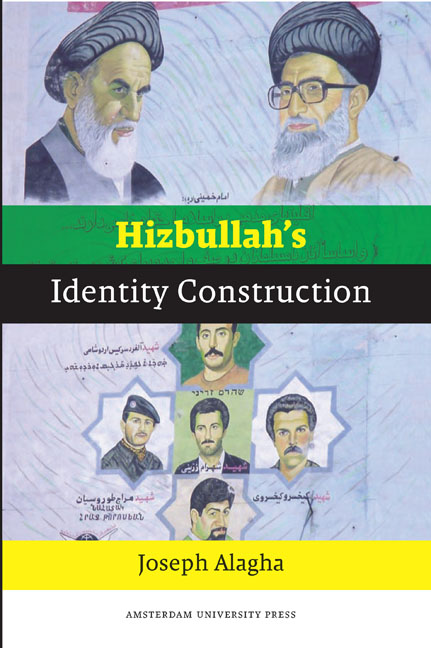Book contents
- Frontmatter
- Dedication
- Contents
- A Note on Transliteration
- Acknowledgements
- List of Abbreviations
- Summary
- Introduction and Analytical Framework
- 1 Tolerance and Discrimination: Ahl Al-Dhimma in the Islamic Order
- 2 Interpretation and Authority: Wilayat Al-Faqih
- 3 Political Violence: Terrorism and 9/11
- 4 Political Violence: Suicide Operations
- 5 From Cooptation to Contestation to Political Power
- 6 The Doha 2008 Accord and its Aftermath
- 7 The Eighth Conclave: A New Manifesto (November 2009)
- 8 Epilogue: Future Prospects – Disarmament and the Peace Process
- Afterword
- Glossary
- Additional Reading
- Notes
- Selected Bibliography
- Index
- Praise for Hizbullah's Identity Construction (1978-2010)
Afterword
Published online by Cambridge University Press: 19 January 2021
- Frontmatter
- Dedication
- Contents
- A Note on Transliteration
- Acknowledgements
- List of Abbreviations
- Summary
- Introduction and Analytical Framework
- 1 Tolerance and Discrimination: Ahl Al-Dhimma in the Islamic Order
- 2 Interpretation and Authority: Wilayat Al-Faqih
- 3 Political Violence: Terrorism and 9/11
- 4 Political Violence: Suicide Operations
- 5 From Cooptation to Contestation to Political Power
- 6 The Doha 2008 Accord and its Aftermath
- 7 The Eighth Conclave: A New Manifesto (November 2009)
- 8 Epilogue: Future Prospects – Disarmament and the Peace Process
- Afterword
- Glossary
- Additional Reading
- Notes
- Selected Bibliography
- Index
- Praise for Hizbullah's Identity Construction (1978-2010)
Summary
PARADIGM SHIFT: A CRY FOR FREEDOM
‘There is something in the soul that cries out for freedom.’
Martin Luther KingDid the Arabs finally heed the call of the late Chinese communist leader Mao Tse-tung (who urged them to just march in order to realize their potential and actualize their power)? Or, maybe, they listened to one of their indigenous nationalist leaders Antun S‘adé who repeatedly stated, “In you is a power, which if actualized will change the course of history”?
In less than a month, two Arab leaders were deposed by the people's power. Are the 1989 winds of change blowing across the Arab world? As the Middle East is engulfed with protests portraying the affirmation of the will of the people after decades of authoritarian rule, Lebanon does not remain the anomaly; rather change has been instigated by an unexpected actor. The catalyst was Tunisia's Jasmine uprising that ended the 23-year old rule of president bin ‘Ali after the army supported the uprising and ousted him into exile in Saudi Arabia on 14 January 2011. This paved the way for the return, on 30 January 2011, of the moderate Islamist intellectual Rashid al-Ghannushi, the leader of the ‘Renaissance Movement’ (al-Nahda), who was forced to flee in the late 1980s. While in Tunisia street politics led to a regime change, its domino effect swept throughout the region with varying degrees of success. In Morocco, Algeria, Sudan, Jordan, Syria, Iran, Yemen, Bahrain, Kuwait, Oman and Saudi Arabia demonstrations were more restrained and did not gain the support of the army, thus failing to initiate regime change. From 25 January to 11 February 2011, after eighteen days of massive demonstrations that claimed the lives of more than 350 people throughout Egypt, the most populous Arab country with the largest army in the Middle East, the social-network revolution succeeded in ousting president Mubarak after 30 years of autocratic rule. In Libya, the ‘17th of February Revolution’ deteriorated into protracted civil war that claimed the lives of thousands. Belatedly, on 17 March 2011, UNSC Resolution 1973 imposed a no-fly zone and took ‘all necessary measures’ to protect civilians.
- Type
- Chapter
- Information
- Hizbullah's Identity Construction , pp. 187 - 190Publisher: Amsterdam University PressPrint publication year: 2012



